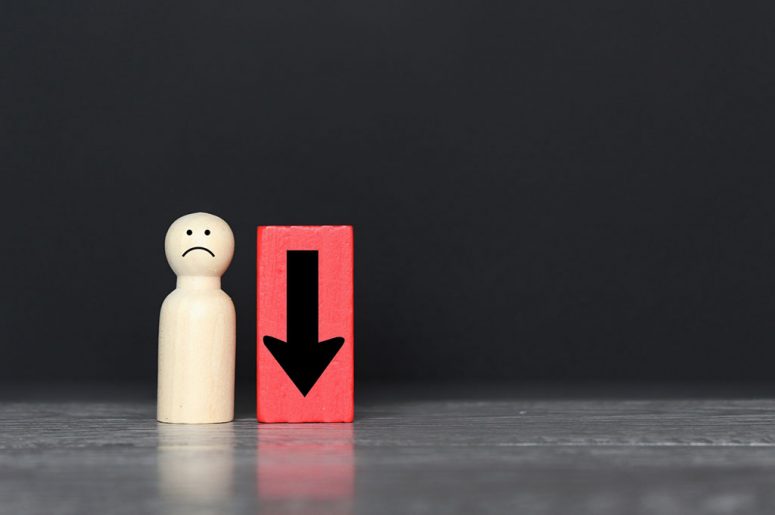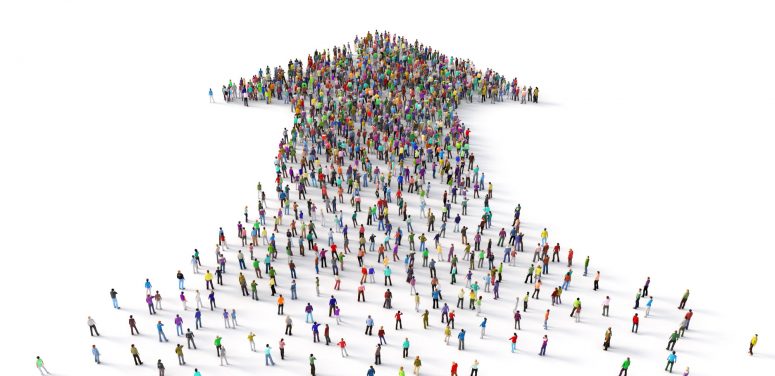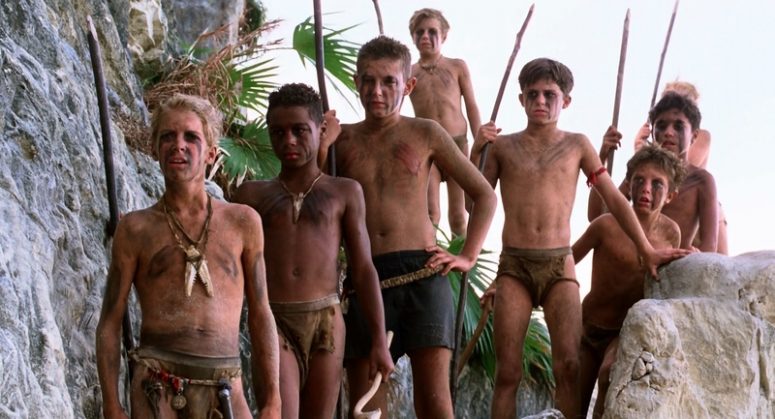
Courtesy Shutterstock
Statistically speaking, the world has drastically improved in recent centuries. We live in a measurable (albeit imperfect) Golden Age—never has there been a better time to be born, regardless of gender, race, religion, economic class, and 99% of nationalities.
And yet, most people think morality is in rapid decline, according to new research by Adam Mastroianni. After studying half a million humans, Mastroianni cites two causes for this: biased exposure and biased memory. The first is how people pay more attention to negative news, which journalism disproportionately publishes in order to increase advertising revenue. The second means the outrages of yesterday don’t seem so outrageous today (even though they are).
In short, media bias and our brains have tricked us into thinking everything is worse. As Mastroianni writes, “If you think that morality is declining, then you must think that some switch has been flipped in society, causing it to produce worse humans. No doubt you would want to un-flip that switch, whatever you think it is: smash the social media companies! Kill all the politicians! Ban the bad books! None of that is going to reverse the trend, because the trend doesn’t exist. It’s like activating the sprinkler system in a building that’s not on fire.”
This realization is both refreshing and frightening. In the meantime, let’s not “fix” anything until we verify that it’s actually broken.
See also: Does accepting (or celebrating) social progress hinder future progress?

Courtesy Shutterstock
I was recently talking to an ultra-liberal friend who admitted that today is a better time to be born than any other time in history, regardless of race, gender, and let’s say 99% of nationalities. While the world is far from perfect, it is a better place for the greatest number of people. That includes higher life expectancies, education, and literacy rates, and remarkably less death, disease, poverty, war, crime, dictators, and injustices.
Nevertheless, this same friend expressed fear that acknowledging said progress might encourage conservative society to stop making progress. I argued that most conservatives have made social progress, albeit slower than liberals, since forever (especially since the industrial revelation). Furthermore, there’s no evidence suggesting that conservatives will suddenly stop once a tolerable threshold of social equality has been reached. And yet I suspect this liberal fear exists in more than just my friend.
I don’t know the exact number, but I do know many outspoken liberals feel the need to qualify any acceptant that the world has gotten better. They almost always couch it with, “Yeah, but we still have a long way to go!” I sense many of them share this fear that by acknowledging our social progress, we’ll suddenly stop perfecting the other flawed areas of social inequality.
To get to the bottom of what I believe is an unfounded fear, I interviewed several people on the subject. This is what I learned. Continue reading…

What happens when two Hollywood actors who know nothing about soccer buy a middling pro team in Wales? GQ’s Tom Lamont spent a season following football’s newest fans to find out. “Maybe we don’t make it all the way to the Premier League,” Reynolds allowed, “but if this club is promoted, once, twice, that’s epic, right? That’s history.” Continue reading…

Credit: Blake Snow
My wife and I believe the world is inherently good and we want to indoctrinate our children to think the same. Not by ignoring society’s seedy underbelly. But with measurable evidence such as this that overwhelmingly proves the world is getting better and better.
To that end, my wife shared the following quote with our children and I over breakfast recently: “Feed your faith and your fear will starve.” In other words, people who are afraid are usually consumed by doubt.
But in my experience, we can replace that fear and doubt with hope and love by doing the following: Continue reading…

Courtesy Columbia Pictures
Lord of the Flies by EL Epstein was one of my favorite books I read in my adolescence. It’s shocking, sad, and discouraging.
It’s also entirely made up and based on the fear-mongering belief that humans will basically eat each other when the going gets rough. Many humans often think like that in times of uncertainty—global quarantines very much included.
But “it’s time we told a different kind of story,” argues Rutger Bregman, who researched the reality of shipwrecked isolation and found that the vast majority of evidence suggests that adolescent boys would act very differently. In fact, they would largely cooperate and thrive instead of succumbing to war, murder, and anarchy.
“Readers were still skeptical,” Bregman reported, however. So he searched high and low for a real-life example of what shipwrecked boys might actually do. After sleuthing on the internet, he discovered a story of six boys from Tonga in 1965 who were shipwrecked on a Polynesian island for 15 months. He went and visited one of the survivors and heard a detailed and inspiring true story. The short of it: when the boys were finally rescued by a passing ship on September 11, 1966, a physician was “astonished by their mulled physiques” and overall health.
“The real Lord of the Flies is a tale of friendship and loyalty,” Bregman concludes. “One that illustrates how much stronger we are if we can lean on each other.”
Need more proof? Look how far humanity has come over the last 2000, 200, 100, or even 10 years! If the haters, pessimists, and naysayers were actually right, we would have all died along time ago. 💪

I wish coronavirus never happened. Given its uncertainty, I also wish society would have partially distanced like Sweden did instead of hitting the giant “off” switch on social life or “save hospital capacities at all costs” approach the rest of us took.
It’s a fearful world we live in.
That said, I’ve been able to take the lemons, if you will, to make some sweet lemonade recently. Although I was an angry, stressed-out wreck the first two weeks of quarantine, I’ve been able to transition to first coping and eventually thriving over the last month.
Here’s how the unwelcome outbreak and draconian quarantine have actually changed my life for the better: Continue reading…

Courtesy Robert Clark/TIME
“Once the dump trucks and bulldozers have cleared away the rubble and a thousand funeral Masses have been said, once the streets are swept clean of ash and glass and the stores and monuments and airports reopen, once we have begun to explain this to our children and to ourselves, what will we do? What else but build new cathedrals, and if they are bombed, build some more. Because the faith is in the act of building, not the building itself, and no amount of terror can keep us from scraping the sky.”—Nancy Gibbs (written three days after the bombing of the Twin Towers, but before the big holes were “built” in their place)







